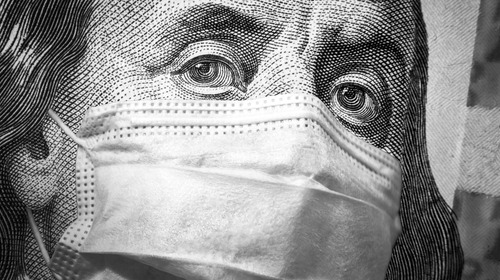
The COVID-19 pandemic has hit a critical stage, according to the Infectious Diseases Society of America (IDSA), and as such, the $1.9 billion American Rescue Plan touted by the Biden Administration and advanced by the House last week represents a welcome boost.
“This legislation represents an important step toward our containment of, and recovery from, this pandemic’s impacts,” IDSA said in a statement. “As we follow the pandemic trajectory and aim to bring the pandemic under control, more resources and policies to address ongoing health inequities will likely be needed. More and sustained funding will certainly be necessary in the long run to address the gaps in our public health and biomedical research infrastructure that have been both further exposed and exacerbated by the pandemic.”
This would ideally include long-term investments into affordable health care, global health security, and health equity, as well as greater efforts to meet daily public health needs. For IDSA, the issue is not merely the present pandemic but the potential for future public health emergencies. In this regard, it noted that the COVID-19 relief bill addresses many of the recommendations and concerns voiced by its members and the larger medical, scientific, and public health communities.
The American Rescue plan would provide:
- $7.5 billion for the Centers for Disease Control and Prevention (CDC) for COVID-19 vaccine administration and tracking
- $1 billion for efforts to boost vaccine confidence
- $6.05 billion to the Department of Health and Human Services (HHS) for research, development, manufacturing, and purchase of COVID-19 vaccines, therapeutics, and other medical products
- $500 million to the Food and Drug Administration (FDA) to support the review, development, and post-marketing surveillance of COVID-19 vaccines and therapeutics, and address drug shortages
- $47.8 billion to HHS for COVID-19 to detect, diagnose, trace and monitor COVID-19 testing
- $1.75 billion to CDC to expand genomic sequencing and tracking of COVID-19 mutations and variants
- $500 million to CDC to strengthen data surveillance to forecast and track COVID-19 hotspots
- $750 million to CDC to combat COVID-19 globally
- $7.6 billion to HHS to expand and support the public health workforce
- $3.5 billion to the Global Fund to Fight AIDS, Tuberculosis, and Malaria, and $250 million for the President’s Emergency Plan for AIDS Relief to mitigate the pandemic’s impacts on global HIV control efforts and to prevent, prepare for and respond to coronavirus in developing countries
- $905 million to USAID for global health activities to prevent, prepare for and respond to COVID-19 and for a U.S. contribution to a multilateral vaccine development partnership to support epidemic preparedness
- An additional $3.09 billion to USAID for COVID-19 response efforts, including support for international disaster relief, rehabilitation, reconstruction, emergency food security needs, and health activities
- Enhanced federal support for the 14 states who have not yet adopted Medicaid expansion
- Seven years for states to extend Medicaid and Children’s Health Insurance Program (CHIP) eligibility to women for 12 months postpartum
- Temporary enhanced premium support for low-and middle-income Americans to purchase Marketplace coverage
“As new variants of the virus that causes COVID-19 continue to emerge and spread, and the continued development and authorization of new vaccines offer an urgently needed front line of defense, we ask the Senate to approve this life-saving legislation and send it to the President to sign into law,” IDSA said.




